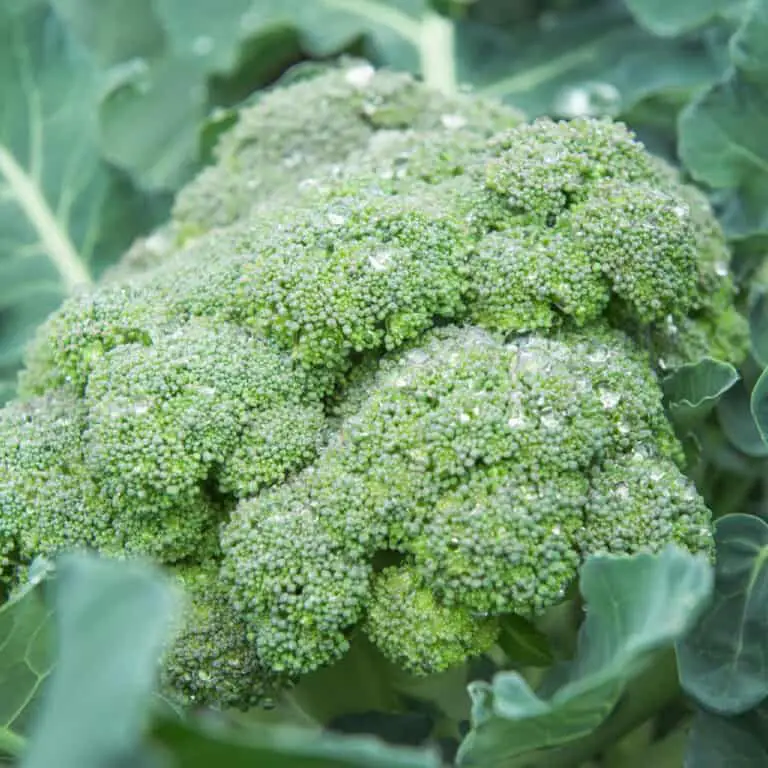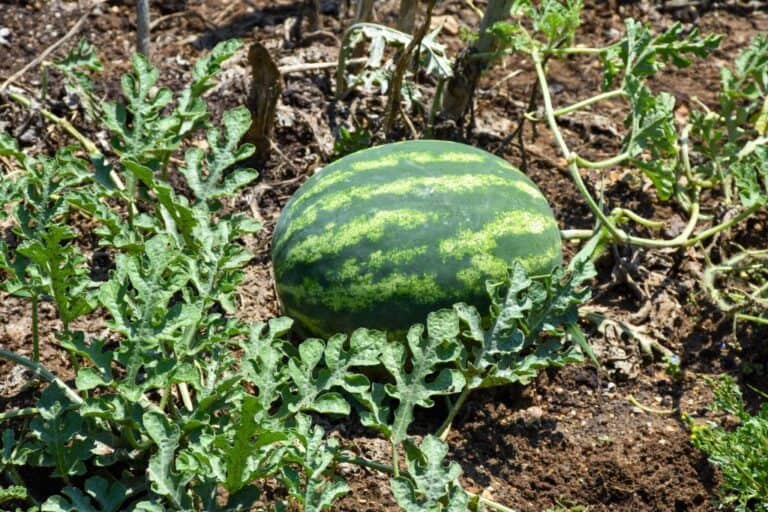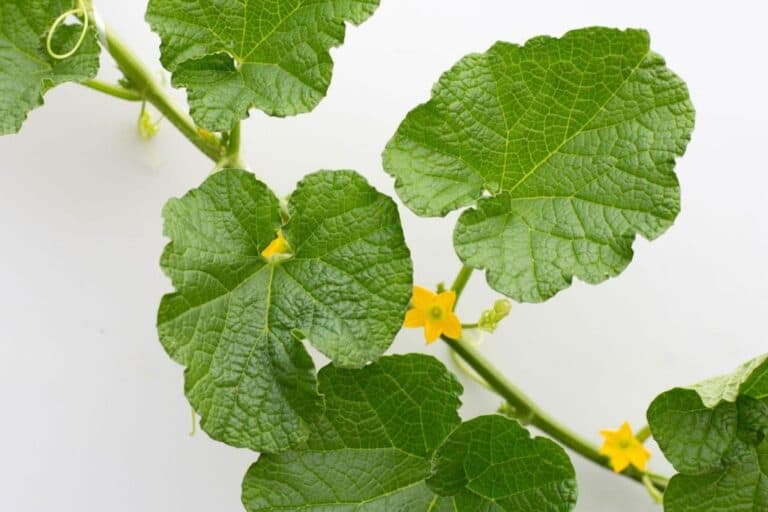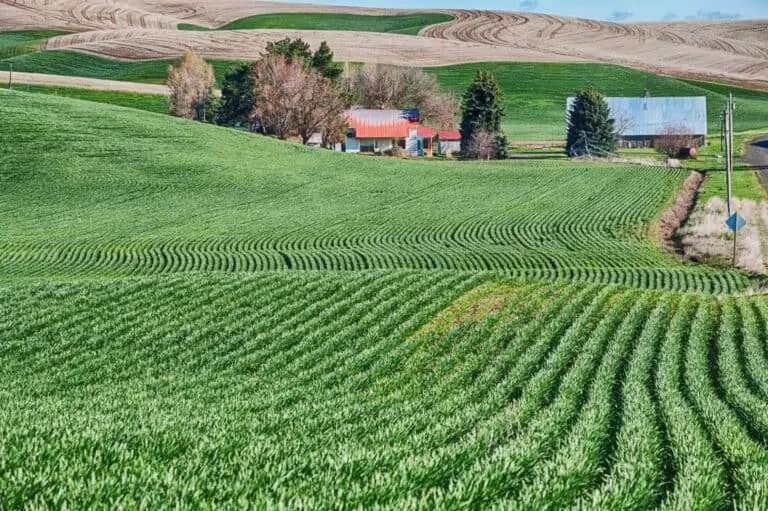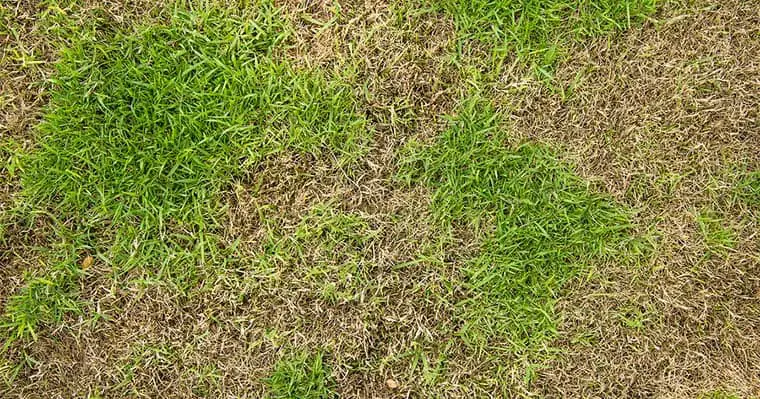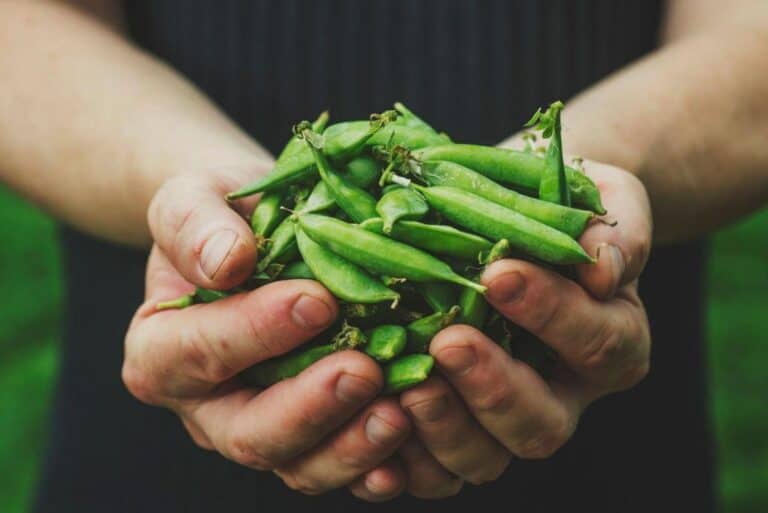How Often to Water Bell Peppers Plants in Pots? How Much Do They Need?
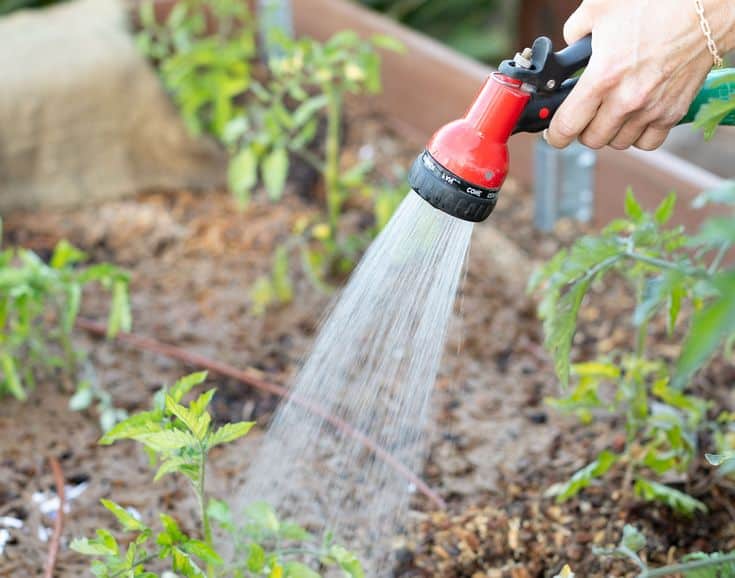
Bell peppers are a great way to add flavor and nutrition to your meals, and they’re easy to grow in your garden. To get the best results from your bell peppers, you need to water them regularly.
Watering bell pepper plants are an important part of their care. The amount of water that a bell pepper needs will vary depending on the type of soil that it is planted in and the weather conditions. How often you water them depends on other factors as well.
In general, bell peppers require 1-2 inches of water per week. This can be provided by watering the plants regularly or by rainfall. If the weather is hot and dry, you may need to water the plants more frequently than if the weather is cool and wet.
How Much Water Do Bell Pepper Plants Need?
Aim to give bell peppers 1″ of water during their early vegetative growth and 2″ of water during flowering and fruit production. Later, water back to 1″ when bell peppers start to reach the size of a baseball. You should water your peppers more frequently during hot weather.
Like most garden plants, less frequent deep watering is more beneficial than more frequent shallow watering. Less often and deep watering will promote strong, healthy root growth. Deep roots are forced to dig deep for water, and shallow roots don’t sit in constantly wet topsoil, which can cause root rot.
Using a rain gauge will give you an accurate idea of how much rain has fallen. Consider watering right after light rainfall to give a deep watering. A rain gauge will also allow you to measure how much water a sprinkler gives off at a certain time.
When watering plants in containers, water slowly. When water starts to flow out of the bottom, the container is well watered. If you water too fast, water will come out of the bottom, but the entire container won’t be evenly watered.
Watering through the pot until it drains will prevent salt and mineral buildup at a certain level in the pot and help keep the soil evenly watered. If you want to get more scientific with watering pots, this article shows how to water containers by weight.
Should You Water Pepper Plants Everyday?
The simple answer to whether you should water pepper plants every day is no, you should not. Peppers grow best when they receive between 1 and 1.5 inches of water per week, and if you water them every day, you will likely give them too much. This can lead to root rot, which will kill the plant.
However, there is a caveat to this rule. If your plants are in hot, dry weather, or if they are in a container that does not drain well, you may need to water them more often than once a week. Check the soil moisture regularly and water as needed.
Watering should be done when the soil has dried slightly. That may be every day during the summer’s hottest days. During milder seasons, such as spring and fall, you may only have to water them every 2-3 days. The important thing is, you should always look after plants and soil conditions. Give your pepper plants some water if it seems particularly dry.
Check the soil moisture level every day and water when it’s low. Water deeply and wait a few minutes for the water to soak in before watering again.
Feel the Soil Before Watering Peppers
Check the soil as well; if it feels dry one inch or two deep, it’s time to water once again. If the soil feels damp and is already moist, don’t water pepper plants! Even if they’re drooping, because this may indicate that you’ve overwatered them. When the soil is moist, people sometimes mistake drooping for a need for additional water.
How Often Should You Water Pepper Plants in Pots?
Pepper plants can be grown in pots or on the ground. When growing bell peppers in pots, it is important to water them often, so they don’t dry out.
How often you need to water your pepper plants will depend on a few factors, including the size of the pot, the type of soil, the weather, and how often you fertilize the plants.
In general, you will need to water pepper plants in pots every day or two when it is hot and sunny outside. If it rains regularly or if it is cooler outside, you may only need to water them once a week.
Overwatering is a common problem with pepper plants. We’ve discovered that it’s one of the major reasons some people have concerns with them!
How Often Should You Water Pepper Plants in the Ground?
Peppers planted in the ground like a garden don’t need to be watered as frequently as peppers grown in containers. Especially in warmer weather, containers, and pots dry up faster than the ground. Our best advice is to feel the top inch or two of soil and water only when it is dry.
However, if you live in a hot climate, you can probably water your peppers in the ground less frequently than those grown in containers. Peppers planted in the ground are able to get more moisture from the soil, and they also benefit from the natural rain and irrigation that typically occurs in outdoor gardens.
Can You Overwater Bell Pepper Plants?
Can you overwater bell pepper plants? The answer to this question is yes and no. Peppers are sensitive and susceptible to overwatering. They can be killed by too much water, but they also need a good amount of moisture to grow well.
Wilted leaves are one sign of an overwatered pepper plant, which may appear to imply that the plant requires water when it really has too much. Consider that bell peppers evolved in hot climes when deciding how much water is too much.
Along with preventing waterlogging in the soil, you should avoid watering the plants’ leaves, since this can lead to fungal issues like early blight. Black patches on the leaves and stems are signs of early blight.
It’s also important not to over-water pepper plants, as this can lead to root rot. Soil that is constantly wet will cause the roots to die, and the plant will eventually die too.
How Do You Know if You’re Overwatering Your Plants?
One of the most common mistakes made by gardeners is overwatering their plants. This can lead to a number of problems, such as root rot, fungus gnats, and mold. So how do you know if you’re overwatering your bell pepper plants?
The best way to tell if you’re overwatering your plants is to look at their leaves. If the tips of the leaves are brown, then they’re probably getting too much water.
Another sign that you’re overwatering your plants is if their roots are growing out of the pot or if the pot is constantly wet. If you’re seeing any of these signs, then you need to start watering your plants less often.
Another sign that you may be overwatering your plants is that they start to droop. If your plants are constantly wet and soggy, they will not be able to breathe, which will cause them to droop.
Overwatering peppers can result in yellow leaves, drooping, stunted development, and a general state of ill health.
If you are unsure whether you are overwatering your plants, it is best to test the soil moisture levels.
Does Watering Affect the Heat of Peppers?
The heat level of all hot peppers might vary based on several factors like growing conditions, weather, sunlight, soils, water, etc.
In order to understand if watering affects the heat of peppers, an experiment was conducted. In this experiment, red and green bell peppers were watered with either a high or low water volume for two weeks. The peppers were then rated on their spiciness using a 1–10 scale.
The results of the experiment showed that the peppers that were watered with a low water volume had a higher average spiciness rating than the peppers that were watered with a high water volume. This suggests that watering can impact the heat of peppers.
Less water means more capsaicin is produced, which creates hotter peppers that are also tastier. Many hot pepper gardeners advise letting the plants dry out until the leaves droop somewhat before watering again for the hottest peppers.
Final Thoughts
Bell peppers are a type of vegetable that is typically grown in gardens. They are a part of the Capsicum family and there are many different types of bell peppers.
Bell peppers need plenty of water to grow properly. How much water they need depends on the weather conditions and the type of soil they are planted in. In general, bell peppers should be watered every other day. If it is hot and dry out, they may need to be watered every day.

